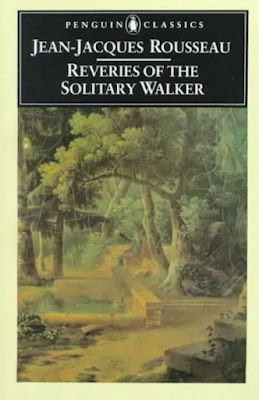"...thus I learned, by my own experience that the source of true happiness is in ourselves, and that it is beyond the power of man to render those truly miserable, who determine to be otherwise..."
In the two years before his death in 1778, Jean-Jacques Rousseau composed the ten meditations of Reveries of the Solitary Walker. Combining philosophical argument with amusing anecdotes and lyrical desriptive passages, they record the great French writer's sense of isolation and alienation from a world which he felt had rejected his work. As he wanders around Paris, gazing at plants and day-dreaming, Rousseau looks back over his life in order to justify his actions and to elaborate on his ideal of a well-structured society fit for the noble and solitary natural man. g'r
Fifth Walk
OF all the places I have inhabited (and I have been in some that were delightful) none ever rendered me so truly happy, or left such pleasing impressions on my memory, as the Island of Saint Pierre, in the Lake of Bienne. This little island, which is called at Neufchâtel the Isle of La Motte, is little known, even in Switzerland, no traveller, that I recollect, having mentioned it; notwithstanding it is very agreeable, and peculiarly calculated for the happiness of a man who loves to circumscribe his steps: for though I am, perhaps, the only one in the world to whom Fate has given law in that particular, I cannot believe I am the only person who possesses so natural a taste, though, to the present moment, I have never happened to meet with anyone of that disposition... (continues)

No comments:
Post a Comment